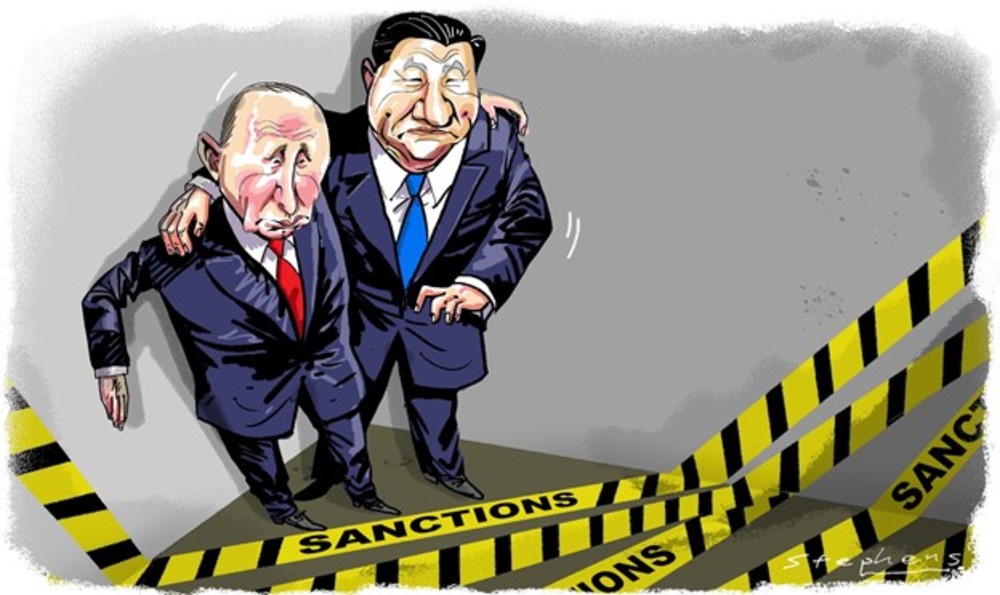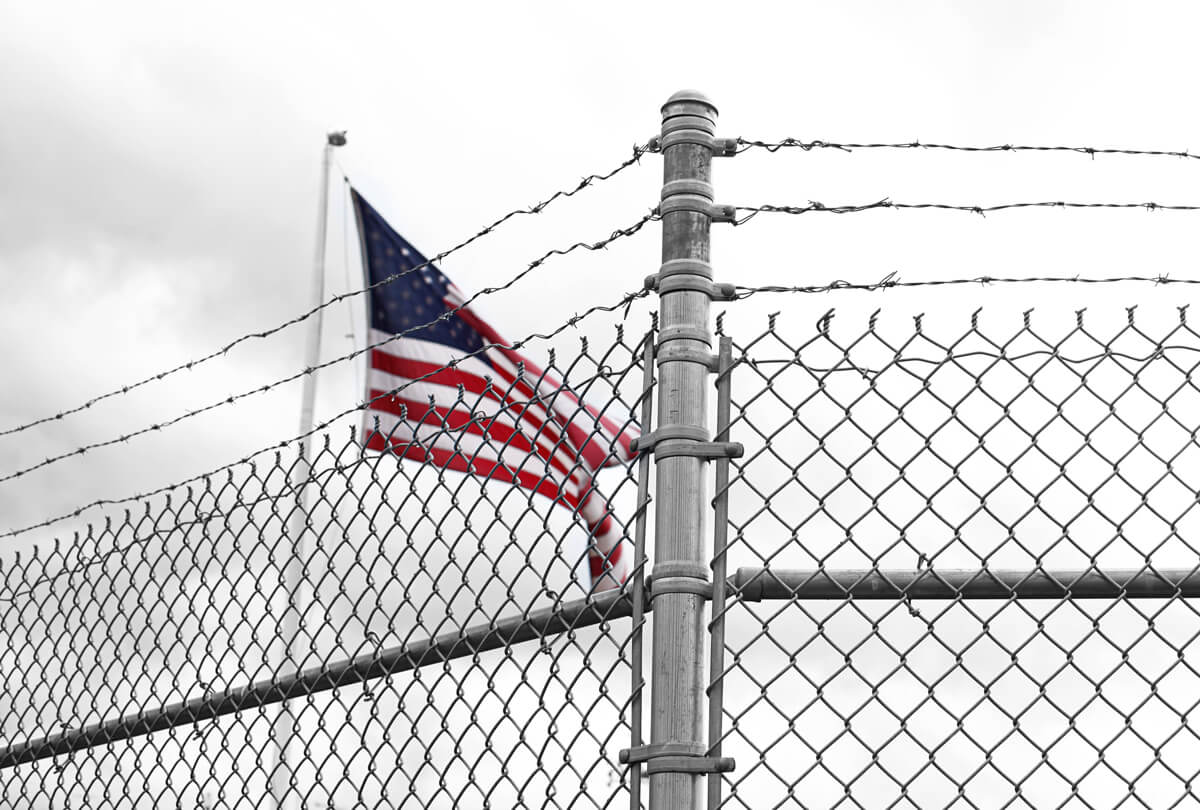
SZE YU WANG – APRIL 5TH, 2021
EDITOR: MILLIE KHOSLA
Within a month of entering office, President Biden raised concerns on human rights abuses in China, imposed economic sanctions on military leaders in Myanmar, and announced that the US will not hesitate to “raise the cost on Russia.” Though it is still early to say, this swift resort to economic coercion may offer a glimpse into the next four years of US foreign policy, during which Biden’s commitment to defending global order and democracy will be thoroughly tested.
Throughout the course of 2020, civil liberties declined worldwide, partly due to the numerous lockdowns and social distancing measures necessitated by the COVID-19 pandemic; last year, the Economist’s Global Democracy Index recorded its lowest ever score since it began in 2006. Within the past year, China has used a new National Security Law to arrest prominent democrats in Hong Kong, while over the past few months, Russia and Myanmar have been embroiled in their fair share of controversy.
Standing against the backdrop of this emerging authoritarian trend is newly-elected President Biden. The collision course between the United State’s renewed ambition to be a global leader in democracy and human rights, and the growing prominence of autocratic rule worldwide thus appears inevitable. The central role that US sanctions will certainly play in this conflict merits a deeper dive into the history of economic sanctions, their effectiveness in achieving foreign policy objectives, and their potential implications on the standard of living in targeted countries.
What are Economic Sanctions?
Economic sanctions are the withdrawal of customary trade and financial relations for foreign and security policy purposes. Traditionally, sanctions have been a popular (and perhaps overused) tool for the United States to promote democratic values without having to resort to military action. The US’s use of sanctions has grown exponentially in the 21st century—as of mid-2019, it had almost 8,000 sanctions in place.
The American government’s use of economic statecraft dates back as far as 1807, notably gaining significant momentum during the Cold War. During this time, Congress passed legislation that enhanced the president’s ability to impose sanctions on Cold War rivals, including the 1949 Export Control Act that restricted the export of strategic materials and equipment to Soviet countries. When the Korean War broke out in the 1950s, the United States imposed more sanctions against countries such as Vietnam, Cambodia, and Cuba, some of which are still in place today.
The 9/11 attacks, and the United States’ ensuing campaign to disrupt the financial network of terrorist organizations, were another major landmark in the evolution of US economic sanctions. On September 23, President Bush signed Executive Order 13224, authorizing the US government to block the assets of individuals and entities suspected of supporting terrorism. Several weeks later, the Patriot Act was also signed into law, allowing the Treasury to designate foreign jurisdictions and financial institutions as “primary money laundering concerns.”
Since then, US leaders have continued to make use of these tools, whether tailoring them to affect specific individuals, or applying them to broad geographic regions. Moreover, the US Dollar’s global dominance and the centrality of the American financial system has played a pivotal role in ensuring the power and influence of US economic sanctions.
Economic Pressure or Self-Sabotage?
Economic sanctions often aim to discourage US firms from investing in targeted countries, thereby forcing foreign rivals to pay an economic cost for antidemocratic behaviour, human rights abuses, or simply standing in the way of US foreign policy objectives. This can lead to a variety of different political and economic outcomes, and the benefits of economic sanctions have long been the subject of heated debate.
One perspective suggests that sanctions do not always result in the economic result desired by US policy-makers. Studies show that the imposition of economic sanctions and subsequent retreat of US FDI often provides a golden opportunity for global investors to gain market access at the expense of US firms. This inflow of third-party investors would likely damage US business interests, while also limiting the economic pressure that US sanctions seek to create.
However, that is not to say that sanctioned countries do not face dire economic consequences. The ongoing crises in Iran and Venezuela paint a bleak picture of the plight of economies facing the wrath of US sanctions.
“Maximum Pressure”: Living with Sanctions in Iran
Since 1979, Iran has grown accustomed to wave after wave of US sanctions. Most recently, after backing out of the Iran nuclear deal in 2018, the Trump administration began imposing layers of sanctions aiming to exert “maximum pressure” on the Iranian economy.
For now, Iran’s economy is hanging on albeit by a thread. Fortunately, the shortage of imports has stimulated domestic production, while a pivot to manufacturing has helped create employment and save the economy from total collapse. Despite this, over the course of Trump’s ‘maximum pressure’ policy, the Iranian rial lost 80% of its value against the US dollar. Oil exports plummeted, and Iranian GDP contracted 5% in 2020, while inflation reached 30.5%. The result has been a sharp and painful decline in the purchasing power and standard of living of Iranian citizens. In particular, the food market has experienced unprecedented inflation. From 2017-2019, the proportion of urban and rural Iranian households vulnerable to food insecurity grew from 8.84% and 25.17% to 11.2% and 29.2%, respectively.
There is no clear end in sight for Iran’s economic woes; Trump’s policy of economic coercion failed to halt Iran’s nuclear programme, and this January, the foreign ministers of Britain, France, and Germany were forced to express their concern over Iran’s plans to produce uranium metal. In early February, Biden announced that the US will not unilaterally lift sanctions against Iran until it adheres to its commitments from the 2015 nuclear deal.
An Unequal Crisis in Venezuela
While US policy-makers may try to minimize the suffering of civilians in targeted countries, the impact of large-scale sectoral sanctions is often inevitable. In mid-2019, Trump imposed an economic embargo on Venezuela “in light of the continued usurpation of power by Nicolas Maduro and persons affiliated with him, as well as human rights abuses.” The move was the latest in a series of sanctions that the US has been imposing on the Venezuelan regime since 2014.
Despite the sanctions aiming to restrict Maduro’s ability to finance his regime, Venezuela’s authoritarian government appears to have not only weathered the storm, but also emerged more entrenched than ever. As Maduro’s forces continue to cling to power, others point to the heavy toll that is being placed on the country’s population. A report published by the Washington Office on Latin America (WOLA) late last year concluded that although Venezuela’s economic crisis was initially caused by years of corruption and mismanagement, US sanctions have “directly contributed to its deep decline, and to the further deterioration of the quality of life of Venezuelans.”
Although sanctions do not explicitly target essential goods, revenue from Venezuela’s hard-hit oil sector has long been used to cover imports of basic necessities including food, fuel, and medicine. In 2019 the value of average monthly public imports dropped by 46%, while an estimated 300,000 people were at risk from lack of access to medicines or treatment due to sanctions on the country. The economic brunt has also been distributed unequally: as the Venezuelan bolivar continues to suffer from hyperinflation, wealthier households with access to US dollars have coped far better than those in poor neighborhoods. For now, however, the Biden administration does not intend to negotiate.
Looking to the Future
Under the Trump administration, the US showed an increased willingness to counter political repression and human rights abuses by imposing aggressive unilateral sanctions, often without international support. These include the aforementioned sanctions on Venezuela and Iran, as well as others on Turkey, Saudi Arabia, and more. Whether this pattern will continue over the next four years remains to be seen. For what it is worth, Biden has trumpeted the importance of global cooperation. His first foreign policy speech stressed the need for diplomacy and the importance of “rebuilding the muscle of democratic alliances.”
One trend that will likely continue is the increase in the type and complexity of US economic sanctions. In recent years, the United States has introduced a plethora of different forms of sanctions which involve more complex designations, for example, prohibiting only certain forms of financial activity within sanctioned companies. These new tools have allowed the US government the option to precisely target individual actors, as opposed to imposing sweeping financial measures.
As the endless list of US sanctions continues to expand, however, a growing concern is that foreign governments may attempt to dodge sanctions by circumventing the US financial system. Over the past few years, Russia and China have both been developing payment channels and financial networks that are outside of US jurisdiction. Even the European Union has developed a special purpose vehicle (SPV) to allow non-dollar trade with Iran, despite US sanctions. Although the dominance of the dollar and the US financial system is secure for the time being, alternative payment systems do not need to overtake the dollar in order to undermine the effectiveness of US sanctions. As long as these payment systems are established enough to allow sanction-targeted economies to conduct sufficient trade, future US policies of economic coercion could begin to face significant obstacles.
Lastly, a conundrum that looms on the horizon for the Biden administration is the China problem. The importance of Chinese trade makes it impossible for the US to wage “maximum-pressure” campaigns like in Iran and Venezuela. Moreover, the size of China’s economy makes it critical for the US to gain the cooperation of democratic allies, many of whom may be reluctant to disrupt their important economic relationships with China. Targeted sanctions on individual actors have also proved ineffective—in August last year, the United State’s sanctions on 11 Hong Kong government officials had little to no effect in dissuading the implementation of the city’s National Security Law. Biden has promised to restore America’s moral leadership at home and abroad, but he will have to tread carefully in how he chooses to punish China for its human rights abuses in Hong Kong and Xinjiang.
Featured Image Source: South China Morning Post
Disclaimer: The views published in this journal are those of the individual authors or speakers and do not necessarily reflect the position or policy of Berkeley Economic Review staff, the Undergraduate Economics Association, the UC Berkeley Economics Department and faculty, or the University of California, Berkeley in general.



